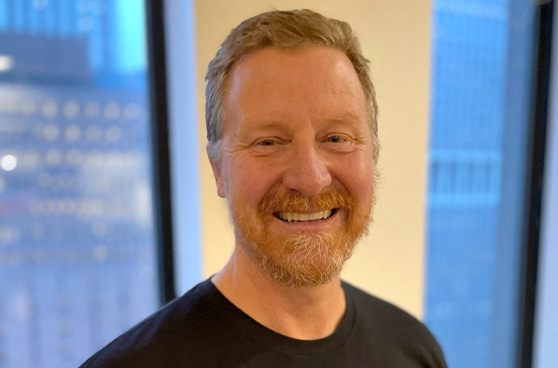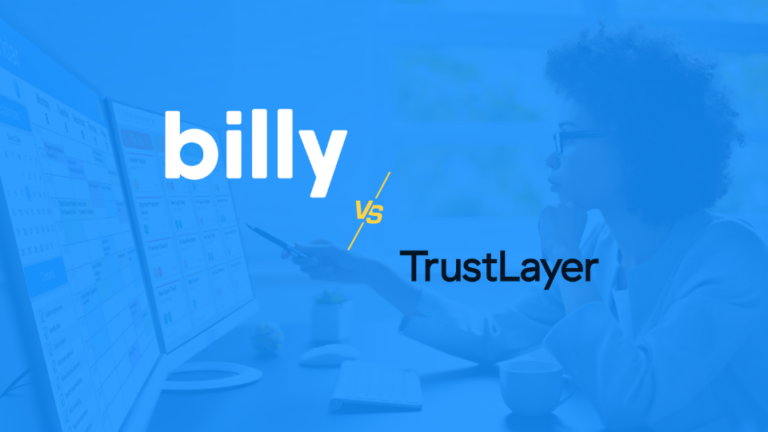When people see buildings lining a busy street, they typically notice their height or aesthetic. Grant Robbins, co-founder of Billy, would look at a building and wonder how it was built. He would think about how all the pieces came together to create a specific structure. Because of this instinct, he considered becoming an architect when he was younger. However, he quickly realized that he would rather be a part of the building process than the design.
So Grant earned a bachelor’s degree in construction management from California Polytechnic State University. After graduation, he began working at Whiting-Turner in its Irvine, California, office. His first project right out of school was a new roller coaster at Knott’s Berry Farm. He got the ability to move around in his role — over the course of 10 years, he and his family moved 10 times. Shortly after his kids hit school, though, he decided to leave his position at Whiting-Turner so his family could stay in one place. That brought him to Centex, one of the largest publicly traded homebuilding companies in the U.S., where he ran land development and entitlements. The company was bought out, and Grant co-founded his own construction business in 2008.
Over 10 years, he built a $35 million company, creating custom homes and multifamily student housing. Just when tension started to boil with his business partner, he shifted his energy toward understanding how technology and software solutions can help construction companies.
He knew construction technology extended beyond Excel spreadsheets, so he researched tech solutions and found Procore, a construction project management software. After his company partnered with Procore — one of the first businesses to do so — he began to work closely with Nyasha Gutsa, Billy’s co-founder and current CEO. Over time, Grant and Nyasha grew close collaborating over building solutions and processes. After Grant left his company in 2018, he called Nyasha, who was no longer working at Procore. They then decided to build something together.
New Partner, New Business
Grant and Nyasha both understood that the construction industry faced several problems. They formed Billy in 2019 to solve these problems, particularly with insurance management during construction. After thousands of calls with industry professionals, they confirmed that most people struggled with tracking insurance. After they received pre-seed funding to hire engineers and develop the product, they got rave reviews during testing and secured series funding.
Because Grant had worked in construction for so many years prior to founding Billy, he understood what was needed to create a successful construction insurance solution.
Construction involves mountains of paperwork, too many emails, and constant verification of contractor compliance. Project managers and administrators receive certificates in the mail or by email, visually verify them, fill out compliance forms, enter dates and policy numbers into ERP systems, and file each certificate.
If it doesn’t meet the project requirements, then either a superior is needed to sign off on the risk or it’s sent back to the subcontractor to revise — and the entire process starts over. Importantly, construction insurance management can become a big obstacle if it expires during the project. At that point, insurance risk transfers from the subcontractor to the general contractor.
There are so many steps with every construction project that it can give way to construction company risks. The industry has found ways to automate a few steps, but most of the construction insurance process is completed manually. Managers get stuck entering every certificate policy number and expiration date for every subcontractor on every job. Then, they have to send emails or call contractors to inform them that their insurance is expiring. Further, the average pay cycle for construction is between 60 and 90 days, so if insurance goes unchecked, it will likely expire during the project — which is a huge construction risk. Still, if people are constantly checking insurance, that’s a lot of time that could be devoted to tasks other than paperwork.
That’s where Billy comes in. Billy’s software automates the entire construction process, making it easier for everyone involved. It includes a proactive insurance management system that doesn’t require manual work. Grant knows that the construction process comes with many concerns, but insurance should not be one of them.
In the future, Grant hopes Billy will be able to help contractors manage all their construction insurance risks in one place so companies can leverage improved compliance into overall insurance premium savings. Construction companies will be able to use Billy to protect themselves and everyone they interact with throughout the contracting and project kickoff process.
Finding a Path in the Business World
As a founder of two successful companies, Grant has many words of wisdom for new entrepreneurs. He has learned that the most important requirements for any business are passion and people. Here are a few of Grant’s tips for industrious people who have struck out on their own or are hoping to:
- Chase your passion. When Grant started his second business, he was 50 years old. It’s easy for anyone in this situation to assume that they are “too old” to put their hat in the ring of business ownership. Also, as people age, it’s easy to become set on a certain path. However, if you enjoy your work, it’s much easier to embrace both the challenges and the learning opportunities that come with entrepreneurship. Learning new lessons can be intimidating, but it can also be rewarding in time.
- Understand your limitations. Entrepreneurship can be exciting, but it also comes with a lot of stress. So you must learn how to delegate and rely on others. This requires trusting people and never being afraid to ask for help. When he first started working on Billy, he realized there was a lot about the software business he didn’t know. He knew how to build buildings but not build software, so Grant quickly learned where he could apply his skills at Billy. The key to achieving your goals is understanding your strengths and working with people who have different skill sets.
- Trust and invest in people. Building a successful company means believing in your people and investing in them. Grant believes company leaders should explain how they approach their goals while also being open to letting team members work toward those goals in their own ways. When you provide enough autonomy, employees are much more likely to feel invested in the company’s mission because they feel trusted.
As business owners in the industry know, construction is incredibly important. Grant himself loves everything about the work. Still, there are parts of the construction process he aims to change for the better. Grant and Nyasha created Billy to modernize how construction companies approach insurance. Once companies trust the efficacy of insurance automation, they’ll be able to use it to save time — so they can refocus their energy toward more important projects while Billy does the heavy lifting.
To learn more about how Billy helps construction businesses, request a demo today.






